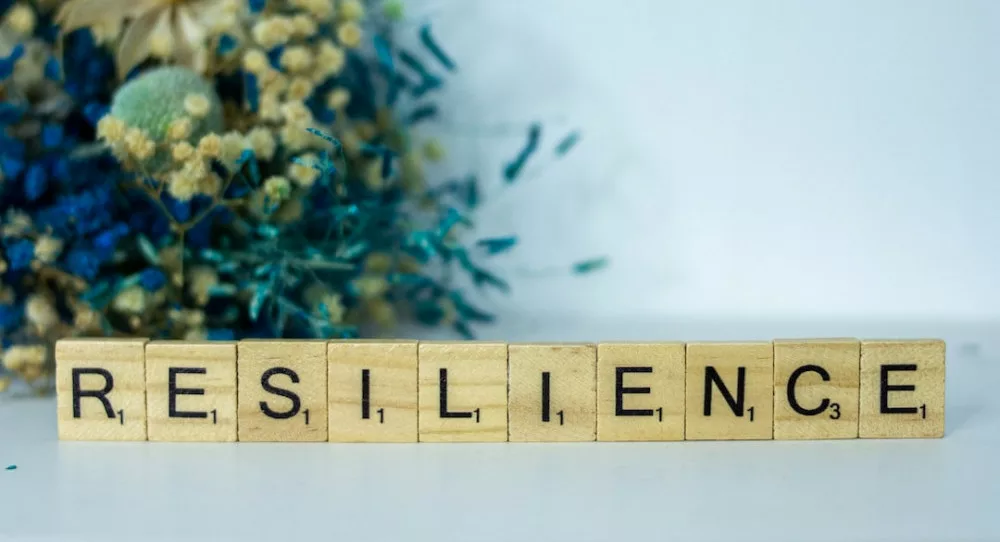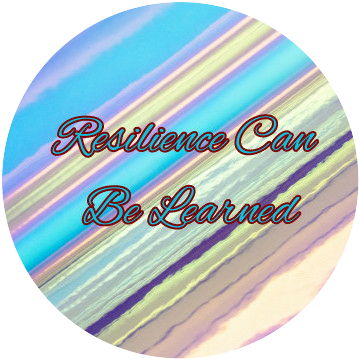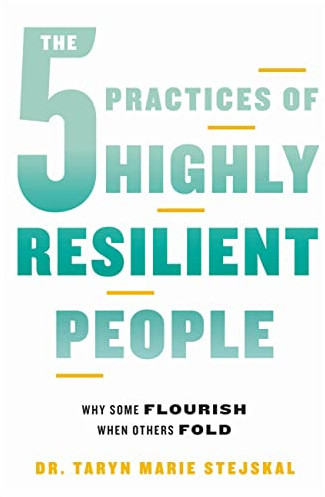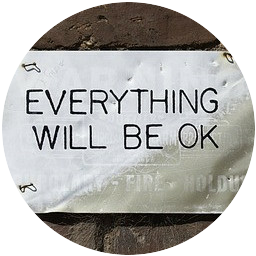Hi! Thank you so much for your insightful comment! I really appreciate your perspective as a mindful educator and meditation…

Resilience – How To Build It And Keep A Positive Attitude
“Resilience is accepting your new reality, even if it’s less good than the one you had before. You can fight it, you can do nothing but scream about what you’ve lost, or you can accept that and try to put together something that’s good.” – Elizabeth Edwards
We all encounter challenges and setbacks in life.
While some of us may give up or feel too overwhelmed to continue, others will persevere. The difference is how resilient we are. It is important to note that resilience does not mean individuals are invincible or immune to stress and adversity. Everyone faces setbacks and difficulties, and resilient people are no exception. But resilient individuals are better equipped to handle stress, manage emotions, and maintain healthy relationships. However, we still have questions about resilience – how to build it and keep a positive attitude to face these challenges and bounce back faster are merely a few of them.
Disclosure: This post contains affiliate links. As an Amazon Associate, I earn from qualifying purchases. When you click on an affiliate link and make a purchase, I receive a small commission (at no additional cost to you). Affiliate links are marked with an asterisk (*).
What Does Being Resilient Mean?
“Resilience is knowing that you are the only one that has the power and the responsibility to pick yourself up.” ― Mary Holloway
Resilience is the capacity to overcome difficulties, obstacles, and adversity. It is the capacity to adjust to and deal with pressure, change, and uncertainty. It is a highly valued quality in both personal and professional settings and is one of the keys to happiness and success in life.
Resilience also involves being proactive and taking action to prevent future problems.
A crucial component of mental and emotional well-being is resilience.
It speaks about the ability to handle pressure and misfortune while keeping a cheerful disposition and a sense of hope.
Resilient people can find meaning and purpose in challenging circumstances and have a growth attitude. Even in the face of severe obstacles, they may act and alter their life for the better.
Is resilience a skill?
“Our greatest glory is not in never falling, but in rising every time we fall.” ― Confucius
Resilience is often considered a positive quality, and many people view it as an innate characteristic that some individuals possess naturally. However, is resilience a skill that can be learned and developed over time?
Some experts argue that resilience is primarily a skill that may be created and improved over time, while others view it as a combination of both innate qualities and learned behaviors. This suggests that resilience is a skill you can learn, practice, and strengthen over time. Like any skill, it takes effort and dedication to develop resilience. The good news is that many strategies and techniques can help individuals build resilience and increase their ability to handle difficult situations.
You can read more about resilience in this article: How to Gain Resilience: Build Mental Strength for a Better You
How Is Resilience Developed?
“It is really wonderful how much resilience there is in human nature. Let any obstructing cause, no matter what, be removed in any way, even by death, and we fly back to first principles of hope and enjoyment.” –Bram Stoker
Resilience is a quality that allows individuals to bounce back from difficult or stressful situations, and it’s a crucial skill for navigating life’s challenges. It is possible to cultivate resilience through consistent practice and effort.
People can become more resilient by creating a support system, engaging in self-care, learning coping mechanisms, setting realistic objectives, problem-solving, re-framing negative thoughts, and practicing flexibility.
In The 5 Practices of Highly Resilient People* Dr. Taryn Marie Stejskal outlines five key practices that resilient people use to overcome adversity and thrive. Together, these five practices form a comprehensive approach to developing resilience that emphasizes the importance of a holistic approach to well-being.
The first practice is cultivating a growth mindset. It involves adopting a perspective that sees challenges as opportunities for learning and growth. This mindset helps individuals to persevere through difficult times and to see setbacks as temporary rather than permanent.
The second practice is building strong relationships. It is about cultivating a supportive network of friends, family, and colleagues who can provide emotional support and practical help during times of stress. Even in challenging circumstances, this technique makes people feel connected and supported.
The third practice is staying grounded in values and purpose. It involves identifying and staying connected to one’s core values and a sense of purpose. This practice helps individuals to stay focused on what’s important to them and to maintain a sense of meaning and direction in life, even when things are challenging.
The fourth practice is embracing change. It requires adapting and being flexible in the face of uncertainty and change. Those who engage in this practice find it easier to deal with change and view it as an opportunity for personal development and learning.
The fifth practice is self-care. It implies complete responsibility for one’s physical, emotional, and mental health and includes strategies like getting enough sleep, eating well, exercising, and practicing mindfulness and meditation to manage stress and anxiety.
The 5 Practices of Highly Resilient People* by Dr. Taryn Marie Stejskal is an insightful and practical guide to developing resilience in the face of life’s challenges. One of the book’s strengths is that Dr. Stejskal draws on her extensive experience as a resilience coach and consultant to provide concrete examples and exercises to help readers apply these practices in their own lives. The book contains stories of people who have overcome significant obstacles using these practices and practical tips and exercises for building resilience.
Another strength of the book is that Dr. Stejskal emphasizes the importance of a holistic approach to resilience, including physical and mental well-being. She provides specific strategies for improving sleep, nutrition, exercise, mindfulness, and meditation practices to help manage stress and anxiety.
I recommend the book to anyone seeking to develop resilience and navigate life’s challenges more easily and confidently. Dr. Stejskal’s practical advice and inspiring stories make the book both informative and engaging, and readers are sure to come away with a deeper understanding of what it takes to be truly resilient.
How Are Positive Attitude And Resilience Related To Each Other?
“The way I see it, if you want the rainbow, you gotta put up with the rain.” — Dolly Parton
Positive attitude and resilience are two traits that are often associated with success and happiness. These qualities are essential in helping individuals overcome obstacles, handle stress, and achieve their goals. While they may seem like individual traits, positive attitude and resilience are closely related, and having a positive attitude can help build resilience and vice versa.
Optimism, hope, and a readiness to see the best in people and circumstances are traits of positive attitudes. Resilience, however, refers to an individual’s ability to bounce back from adversity and persevere through difficult times. Resilient people can adapt to change, handle stress, and recover from setbacks.
So, how are positive attitude and resilience related? A positive attitude can help build resilience. When faced with a difficult situation, those with a positive attitude are more likely to see it as a challenge rather than a threat, and they are more likely to focus on finding a solution rather than giving up. This mindset can help individuals develop resilience because they can view setbacks as temporary and overcome them.
Additionally, those with a positive attitude are more likely to seek social support. A strong support system is crucial in building resilience because it provides individuals with emotional and practical support during difficult times. By seeking support, individuals can build a network of people who can help them through tough times and provide encouragement.
In Conclusion
“That which does not kill us makes us stronger.” ― Friedrich Nietzsche
Resilience entails having the capacity to deal with hardship, hold onto one’s sense of direction, and go on to develop and flourish despite obstacles. Seeing the good in a situation and seeking opportunities for development and learning are key components of a positive attitude.
A positive attitude and resilience go hand in hand because a positive attitude can foster resilience, and resilience can provide a more positive attitude.
While those with a positive outlook may be more likely to acquire resilience when faced with obstacles, people with remarkable resilience can frequently keep an attitude of optimism in the face of difficulty.
People may increase their resilience and cultivate a good attitude that will benefit them in all facets of life by concentrating on their strengths, keeping a positive outlook, and being open to new experiences.
Please feel free to comment on how you formed resilience and what that changed for you.
Or if you have more questions or need help, I am always happy to help.





This read is great and inspiring. Thanks for sharing. Many bad situations and obstacles can be overcome by oneself with willpower and a positive attitude. But in the worst, how important it is to have at your side the person who will give you the necessary support to overcome a crisis.
Hi!
Thank you for your thoughts.
I fully agree that having a support system can be essential during difficult times.
Everyone needs a support system occasionally to share their troubles with.
It’s critical to surround ourselves with people we can rely on for moral support and encouragement.
Having a supportive community, whether friends, family, a therapist, or a support group, may be pretty helpful when facing challenging circumstances.
Miki
Thank you for sharing such a positive post.
Resilience, I feel, does come from within, but we can also learn how to be more resilient through life. Through so many ups and downs that we all encounter, it’s good if we can bounce back from difficult situations in order to move on to the next challenge. Being assertive and a positive person has given me the opportunity to face things head-on and deal with such as I have grown older.
Hi Louise!
True, resilience comes from within, but it is an essential skill that may be created and improved over time. I am glad to hear that positivity helped you deal with the problems in your life. Being positive is essential for growth and improving ourselves, in my opinion.
Thank you for taking the time to read the article and for the feedback.
Miki